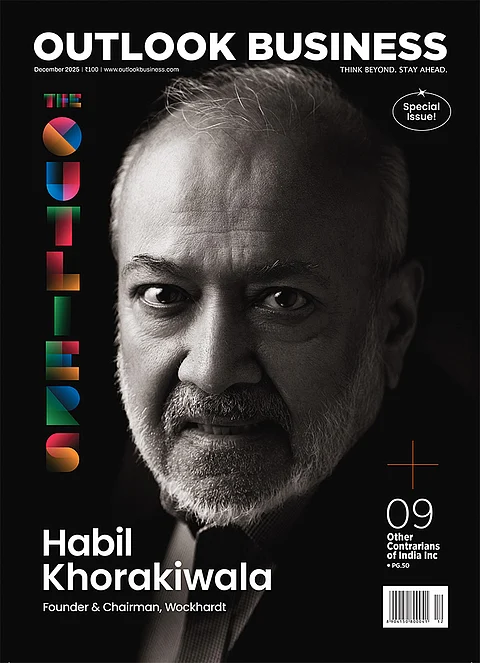You are neither right nor wrong because the crowd disagrees with you, says Warren Buffett. Instead, he says, it is the thoroughness of the analysis that really counts. Unlike most modern finance folks, for the best money manager in the world, standard deviation is no measure of risk, nor can risk be eliminated by simply diversifying the portfolio. Risk, he says, comes from not knowing what you are doing.
Prashant Jain must surely be reminded of the Sage of Omaha’s words and wisdom as he goes through testing times at a stage in his career when he has nothing left to prove. He has to his credit the best 20-year performance track record among mutual funds not only in the country but also across the world.
For instance, Rs.10,000 invested in HDFC Equity Fund, managed by Jain since its inception 20 years ago, has returned Rs.440,000 – that’s a CAGR of 20%. Over the same period, Nifty has returned Rs.68,000, that is a CAGR of just 9.7%.
Yet, being in the money management business, with custody of Rs.30,000 crore of assets directly under his management, he can’t escape being judged on his every move. This is not the first time Jain is facing the heat of underperformance. Back in 2000, when he got off the technology gravy train, and the market went berserk with tech valuations, he lagged behind for many months. Then again, his decision to back off from the infra-led euphoria that was halted by the global credit crisis saved him pots of money only after he had severely underperformed in the months before January 2008.
But this time, patience is being tested a tad more. For the first time, his funds are struggling to keep pace with the benchmark over a five-year period. Over the past five years ending February 16, 2016, HDFC Equity Fund delivered a return of 6.43% versus 6.04% for benchmark Nifty 500 and a category average of 8.87%, while HDFC Top 200 delivered 6.02% versus 5.67% for the BSE 200 and a category average of 6.47%.
There are several concerns. For starters, he has to contend with the winner’s curse of having to manage very large-sized funds. HDFC Equity Fund has assets of Rs.14,470 crore and Top 200, Rs.11,515 crore. That kind of size surely raises questions about how nimble-footed the manager can be in a shallow market like ours. You can’t jump on to a bandwagon along with everyone else – you need to be boarding much in advance because you won’t get a chance to hop on in the nick of time with your kind of bulk. On the way down, it’s even worse.
Of immediate concern though is Jain’s contrarian stance that is the root cause of this pain. Jain has foregone his winning bets in the consumption space in favour of financials and capital goods that are currently under stress. His conviction stems from his earlier wins in 2000 and 2007, when he swapped market darlings for the unloved. With much caution, one is tempted to ask, if “it’s different this time” because those are the most dangerous words in the stock market anyway.
The difference between now, 2000 and 2007 is that the market is not as starkly polarised as it was during those times. There are surely regions of overvaluation and islands of undervaluation. Economy-oriented stocks have been hammered because of underlying stress, not because growth or future prospects in other pockets look earth shattering, making them cheap for no valid reason. Actually, part of the overvaluation in pockets is a result of stress in certain other pockets. While there is no way to make money in the market but to buy low and sell high, too early or too late can make a significant difference to your returns. As you’ll hear him speak, Jain is expecting a recovery in 12 months and his portfolio is positioned to lead that transition. But thus far there is little evidence of that on the ground, and the market is not buying that argument yet.
Ironically, what seems to be a big pain point today may turn out to be the biggest opportunity for outperformance. Astute stock selection has been the biggest driver behind Jain's returns thus far. But with his current fund size, he needs large calls that go right. Jain runs a fairly concentrated portfolio for a mutual fund his size. Contrarian calls on large stocks offer that chance for big outperformance.
To his credit, Jain has demonstrated the most important trait for a fund manager – rationality, and conviction to hold his own against the crowd. This simple, soft-spoken, embodiment of humility is not the one to run after the next new bet, but he goes for the tried and tested where the odds of success are relatively higher for the same level of risk. He is also the manager who has consistently got the better of Mr. Market – the metaphor used by Benjamin Graham to describe the manic-depressive, emotional business partner, who makes an offer to either sell his share or buy your share everyday which you are free to take or reject, for he’ll come back again the next day with a fresh offer. What you decide to take and reject is what determines your financial destiny.
As we discuss his everyday quarrels with Mr. Market, the industrious Jain pulls out a sheet of paper with a list of leveraged corporates, which are either NPAs or stressed assets each bank is exposed to. “It took me six months to prepare this.” That hard work should surely bear fruit. Except that in market neither skill nor study is enough to win. A heavy dose of luck is an essential part – just as in life.











